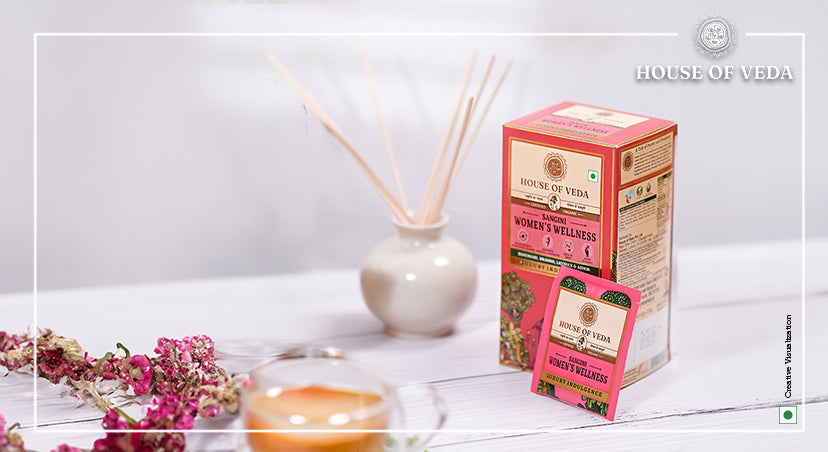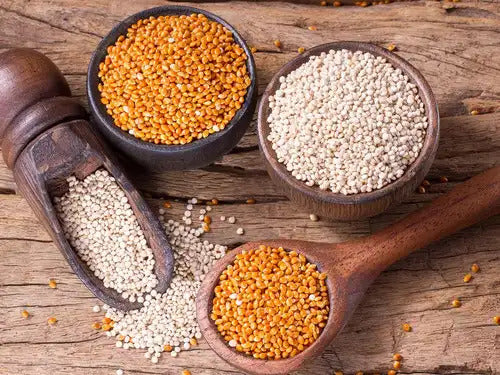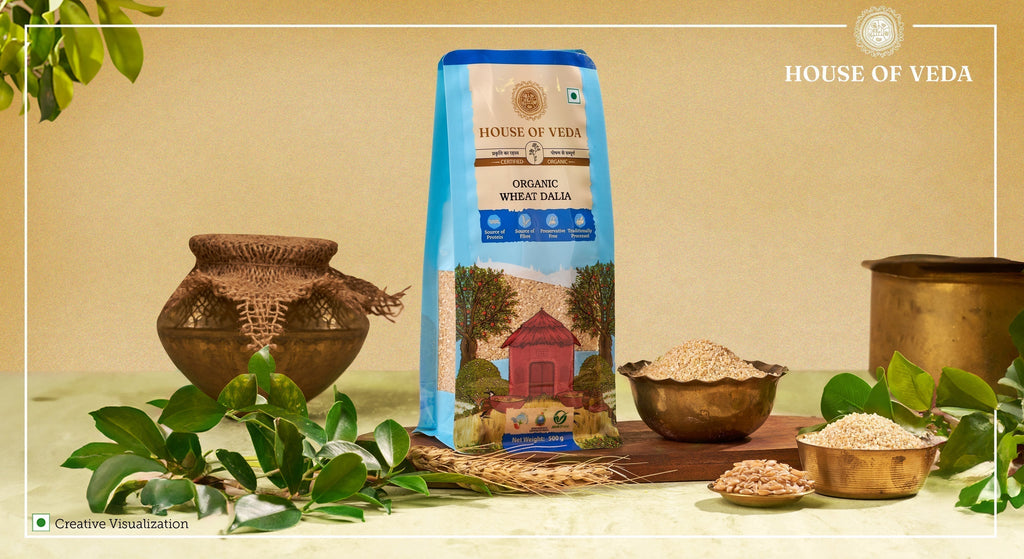
Menstrual Abnormalities: Causes, Symptoms, and Ways to Treat them!

Menstruation is a natural, cyclical process that is as unique as the women experiencing it. And a menstrual cycle says a lot about the health of a woman. While many women have regular and predictable menstrual cycles, abnormalities in menstruation can occur, raising concerns and prompting the need for understanding. In this blog, we will explore what abnormal menstruation is, what are its probable causes, examine associated symptoms and conditions, and discuss ways through which it can be treated.
What's the menstrual cycle?
The menstrual cycle is a recurring sequence of physiological changes the body undergoes to anticipate pregnancy. Every month, an egg is released by one of the ovaries which is termed as ovulation. Hormonal changes that take place in the body, prepare the uterus for pregnancy. In case, the egg remains unfertilized during ovulation, it leads to shedding of uterine lining through the vagina, resulting in a menstrual period.
What is Abnormal Menstruation?
Abnormal menstruation refers to deviations from the typical menstrual cycle in terms of duration, flow, or other related factors. While occasional variations are normal, persistent abnormalities may indicate underlying health issues.
Causes of Abnormal Menstruation:
There can be several different causes for menstrual cycle irregularities. Some of them are as follows:
Hormonal Imbalances: Any kind of variation in the levels of hormones mainly due to excess estrogen and progesterone can lead to disruption in the menstrual cycle. Conditions including polycystic ovarian disease (PCOD), and polycystic ovary syndrome (PCOS) contribute to an imbalance in hormones. Besides, thyroid disorder (excess or deficit hormone production) can also lead to irregularities in the menstrual cycle. Making slight lifestyle changes like consuming women's wellness infusions can help in the regular menstrual cycle.
Structural Issues: Abnormalities in the reproductive organs, such as uterine fibroids or polyps, can lead to irregular bleeding patterns. These structural issues can affect the uterus or the lining, impacting the menstrual flow.
Medical Conditions: Certain medical conditions, like endometriosis, pelvic inflammatory disease (PID), or adenomyosis, can cause abnormal menstruation. These conditions often involve inflammation or abnormal tissue growth in the reproductive system.
Lifestyle Factors: Stress, extreme changes in weight, excessive exercise, or poor nutrition can influence menstrual patterns. These lifestyle factors can disrupt the delicate hormonal balance required for regular menstruation.
Contraceptives or Medications: The use of certain contraceptives or medications can affect menstrual cycles. Birth control pills, intrauterine devices (IUDs), or medications used for chronic conditions may contribute to changes in menstruation.
Symptoms of Abnormal Menstruation:
Irregular Cycles: Menstrual cycles that are consistently shorter or longer than the average 28 days.
Heavy or Light Flow: Menstrual bleeding that is excessively heavy (menorrhagia) or unusually light (hypomenorrhea).
Painful Menstruation: Severe pelvic pain (dysmenorrhea) during menstruation, often indicative of conditions like endometriosis.
Absent Menstruation: Primary amenorrhea (never started menstruating) or secondary amenorrhea (stopped after regular cycles).
Conditions Related to Abnormal Menstruation:
Certain health conditions can be held responsible for abnormal menstruation.
Polycystic Ovary Syndrome (PCOS): It is a hormonal disorder in which the ovaries produce large amounts of male hormones including androgens. It is responsible for causing irregular periods and delaying ovulation. In extreme cases, women with this syndrome can stop ovulating and can be infertile.
Endometriosis: It is a condition where endometrial tissue develops outside the uterus. This tissue connects with the fallopian tubes or the ovaries. It, therefore, results in abnormal bleeding and severe pain before or at the time of periods.
Uterine Fibroids: It is a kind of Non Cancerous tumor that can grow in the uterus. It may result in excess bleeding, frequent urination, backache, and intense pain during intercourse. If the fibroids are large, they require immediate medication or surgery in extreme cases. that can cause heavy bleeding or pain.
Pelvic Inflammatory Disease (PID): It is an infection of the female reproductive organs including the uterus, ovaries, or fallopian tubes. It often results from sexually transmitted infections, and it can cause pain in the stomach & lower abdomen and vaginal discharge. However, the symptoms can vary from female to female.
Ways to Treat Abnormal Menstruation
The ways of treating menstrual irregularities vary based on the type of irregularity. Some of the treatments include:
Hormonal Therapy: Regulating hormonal levels through birth control pills, hormone therapy, or other medications.
Surgery: Removing structural abnormalities like fibroids or polyps through minimally invasive procedures.
Lifestyle Changes: Some slight lifestyle changes can even bring big differences. Addressing factors like stress, weight management, and nutrition can help in restoring hormonal balance. Including herbal green tea and women's wellness infusion in a routine may also reduce anxiety, relieve menstrual cramps, and provide overall strength.
Fertility Treatments: For those trying to conceive, fertility treatments may be recommended based on the underlying cause.
Final Words:
There is a need to understand all kinds of menstrual irregularities by identifying potential causes and symptoms. It is only then that appropriate medical attention can be received. Whether hormonal imbalances, structural issues, or lifestyle changes, there is a need to diagnose the problem and figure out the ways to treat it either through lifestyle changes or undergoing surgery, depending on the complexities. And it’s always advisable to make minor yet impactful changes in your diet like brewing women’s wellness infusion from House of Veda. The infusion is made from potent herbs and spices like Shatavari, ashok, Brahmi, and many more which help in regular menstrual cycle and also reduce menstrual cramps. Remember, your reproductive health is a vital aspect of overall well-being, deserving the attention and care it merits.
FAQs Around Menstrual Abnormalities:
What are the symptoms of ovarian cysts?
It is essential to know that most ovarian cysts show no symptoms however, if the ovarian cyst is large, it can cause:
1. Pelvic Pain can be dull or sharp, varying from female to female.2. Heaviness or fullness in the abdomen
3. Bloating and uneasiness
How are irregular periods diagnosed?
It is important to keep track of your periods' beginning and end dates as the medical professional will require such details to perform a physical examination. It includes diagnosing the pelvic area through ultrasound. The diagnosis can also include endometrial biopsy and hysteroscopy.
How does PCOS affect fertility and menstrual cycles?
In simple terms, PCOS is a condition occurring because of hormonal imbalance. If a woman is diagnosed with PCOS, she can’t ovulate causing infertility and irregularities in the menstrual cycle.
Why can PID cause Menstrual Disorders in women?
Although PID causes infection in the vagina, however, when not treated on time, it can reach. into the uterus, spreading into the fallopian tubes and ovaries. As soon as the infection travels up into the uterus, it impacts the lining inside. Therefore, you may experience heavier blood flow than normal. Besides, the periods can last for a longer time due to PID.
What are the best cures to reduce period cramps?
There are a few quick and effective remedies for mild to temporary period cramps. Some of the ways are:
1. Taking a warm bath can provide instant relief2. Massaging the abdomen, side, and back with essential oils
3. Drinking herbal teas & infusions like Women’s Wellness from House of Veda
4. Doing some gentle exercises
Read More:
How Does Green Tea Help In Weight LossHealth Benefits Of Drinking Green Tea
Reasons To Drink Amla Tulsi Tea
The Ultimate Guide to Women's Wellness Herbal Tea Blends













